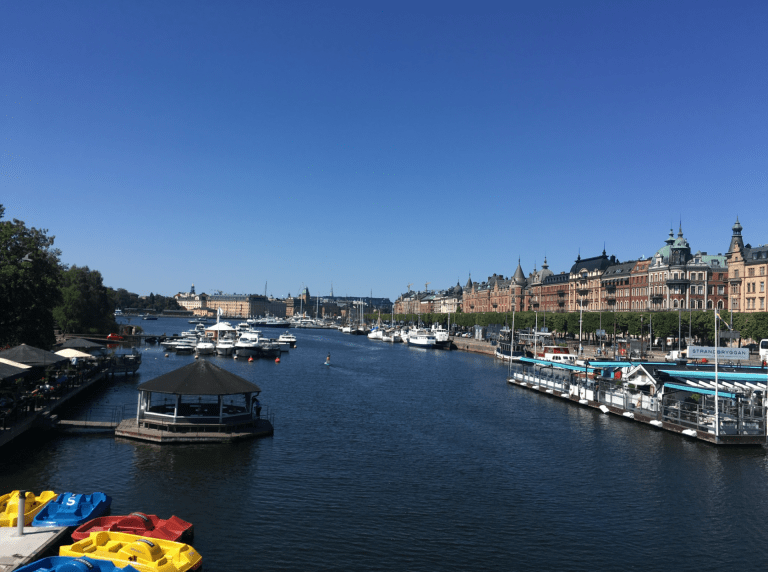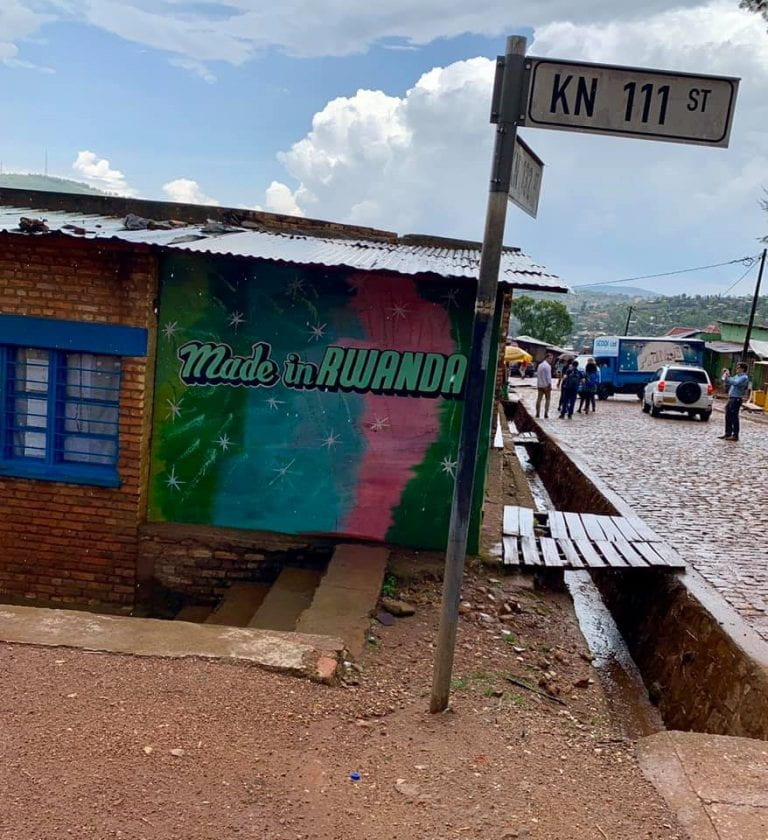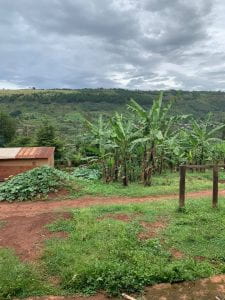G&EE recently caught up with Antonia Aguirre Todorov (PMBA ‘20) to have a conversation about her time at George Washington University School of Business and her participation on our short-term study away programs (STAPs). Read more on the conversation just below -
G&EE: Tell us (and our readers) a little bit about yourself.
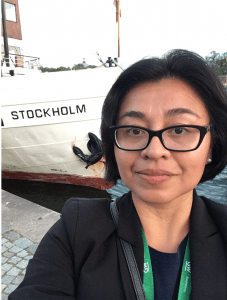 Antonia: I am originally from Acapulco, Mexico and have lived in the Washington, D.C. area for three years now. I earned my Bachelor’s of Business Administration in Business Economics from Georgia State University in Atlanta, Georgia and my professional background is in financial services. I participated in two short-term study away programs (STAPs) during my MBA at GWSB: 1) Sweden: Global Business Project: The Innovation Ecosystem and the Internationalization of High-Tech Firms in Stockholm (STAP Sweden) in the Summer 2019 and 2) Spain: Innovation and Technology in Barcelona (STAP Spain) in the Spring 2020.
Antonia: I am originally from Acapulco, Mexico and have lived in the Washington, D.C. area for three years now. I earned my Bachelor’s of Business Administration in Business Economics from Georgia State University in Atlanta, Georgia and my professional background is in financial services. I participated in two short-term study away programs (STAPs) during my MBA at GWSB: 1) Sweden: Global Business Project: The Innovation Ecosystem and the Internationalization of High-Tech Firms in Stockholm (STAP Sweden) in the Summer 2019 and 2) Spain: Innovation and Technology in Barcelona (STAP Spain) in the Spring 2020.
The STAP Sweden, led by Professor Anna Helm, Associate Teaching Professor of International Business, was an online program over the summer term with the in-country experience in Stockholm. The STAP Barcelona, led by Professor Emerita Mary Granger was an in-person instruction format course over the spring term that switched to fully online in mid-March 2020 due to the COVID-19 pandemic. Also, due to the pandemic the international travel portion of the program to Barcelona, Spain was cancelled.
G&EE: How did you hear about the various opportunities through the Global & Experiential Education Offering and what drew your interest to first apply to our programs?
Antonia: I heard about the various opportunities through the various email communications from G&EE office and the marketing materials placed throughout Duques Hall helped reinforce my interest.
G&EE: Tell us about your experience on the STAP Sweden: Global Business Project: The Innovation Ecosystem and the Internationalization of High-Tech Firms in Stockholm in 2019.
Antonia: I selected this program because it offered the opportunity to partake in a real consulting project with an international firm in Sweden. One of the reasons for pursuing an MBA was to learn about consulting so this was a great opportunity.
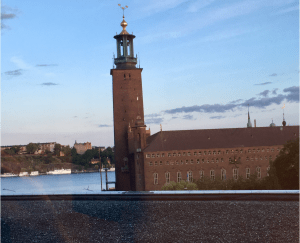
For this program the theme was sustainable innovation of high-tech firms. Stockholm is a startup hub in Europe, and we studied how the intersection of government, education, and business helps propel business creation. During our in-country 9-day experience, we visited several institutions such as Business Sweden, the Swedish Institute, Swecare, and the KTH Royal Institute of Technology. At each site visit, we were welcomed by presenters to help us better understand how business is conducted in Sweden, and how they support their global leadership and image. These visits added significant value to our experience.
In preparation for the course, Dr. Helm assigned cultural readings about Swedish society and consulting strategies by Dr. Paul Friga, author of “The McKinsey Mind”. The most engaging aspect of the class was our weekly team meetings and client meetings. We were fortunate to have a very responsive client, an important factor to help clarify our objectives for our final report and recommendations.
G&EE: What was your global business project and the global partner you worked with in Sweden. How did it help you grow personally or professionally? Did this experience impact your future professional goals?
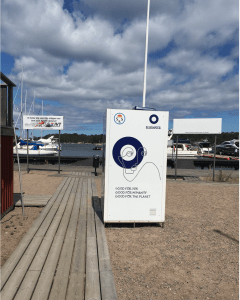
Antonia: My team worked with Bluewater Group, a startup offering high-quality water purifiers seeking strategies to enter the US market. Working on this project involved identifying potential target markets, effective marketing channels, and potential partners in the United States. Regarding my professional goals, this project provided me with consulting experience, which is crucial for MBA students looking to enter the (consulting) industry.
G&EE: Prior to this program, did you ever visit Sweden? How did your time on the program compare to your expectations or past experience?
Antonia: I had not visited Scandinavia before (this program), but it definitely exceeded my expectations. Dr. Helm curated the assignments carefully to make sure we initiated the cultural immersion before meeting our clients and traveling to Stockholm. Understanding the culture, business etiquette, and common misconceptions about the host country made sure students avoid issues and helped move the project forward. This was my first STAP and international consulting experience, therefore I expected the interactions would be rigorous business and low client availability; however, the client was very receptive, responsive to requests, and flexible to attend our meetings.
G&EE: Tell us about your experience on the STAP Spain: Innovation and Technology in Barcelona in 2020.
Antonia: I selected this program to learn more about entrepreneurship and innovation abroad. Prof. Granger’s approach to learn from entrepreneurs themselves provided us with the opportunity to ask questions for those of us considering this career path. This was a different way to learn but quite effective to foster creativity.
The theme was innovation and entrepreneurship based in Barcelona. Our learning focused on entrepreneurship, for which we researched a Barcelona-based startup and created our own venture along with a pitch. To prepare us for this experience, Prof. Granger arranged for guest speakers in the DC area to lecture. We learned from entrepreneurs, venture capitalists and top academics from ESADE in Barcelona (virtually). Unfortunately, due to COVID-19 travel to Spain was cancelled over spring break and our class continued in a virtual format. Once our class switched to virtual, we continued to have guest speakers share their knowledge with us until the final project deliverable.
Overall, one of the most engaging aspects of the program was having direct access entrepreneurs willing to share their experience with MBA students.
G&EE: Cultural immersion leads to the enhancement of transferable skills (flexibility, teamwork, leadership, listening, communication, problem solving, critical thinking). Reflecting on your experiences abroad, what are one or two transferable skills you improved and provide a brief anecdote about it.
Antonia: One skill I developed further was cultural awareness. I travelled to Europe as a tourist many times and resided short-term in Eastern Europe, but my international business exposure needed developing. After completing the STAP Sweden, I have a better understanding of what constitutes the Swedish way when it comes to making decisions: it requires consensus from the team and the process can take longer.
G&EE: You participated in a wide range of mobility programs all around the world! Do you have a favorite memory or experience in all of your travels? Did you travel anywhere else during your free time?
Antonia: While I registered to participate in three STAPs during my MBA program I was only able to travel for one – Sweden. For Spain (Spring 2020) and the United Kingdom (Summer 2020), travel did not take place due to the COVID-19 pandemic. For the Sweden program, my favorite experience was travelling by ferry to Sandhamn Island to visit our client’s desalination plant. It was great to see the Swedish archipelago that way. During our free time, I enjoyed having fika – the Swedish coffee break- at local coffee shops while working on my assignments. Being able to see City Hall, where the Nobel Prize banquet takes place each year, from my hotel window did not hurt either.
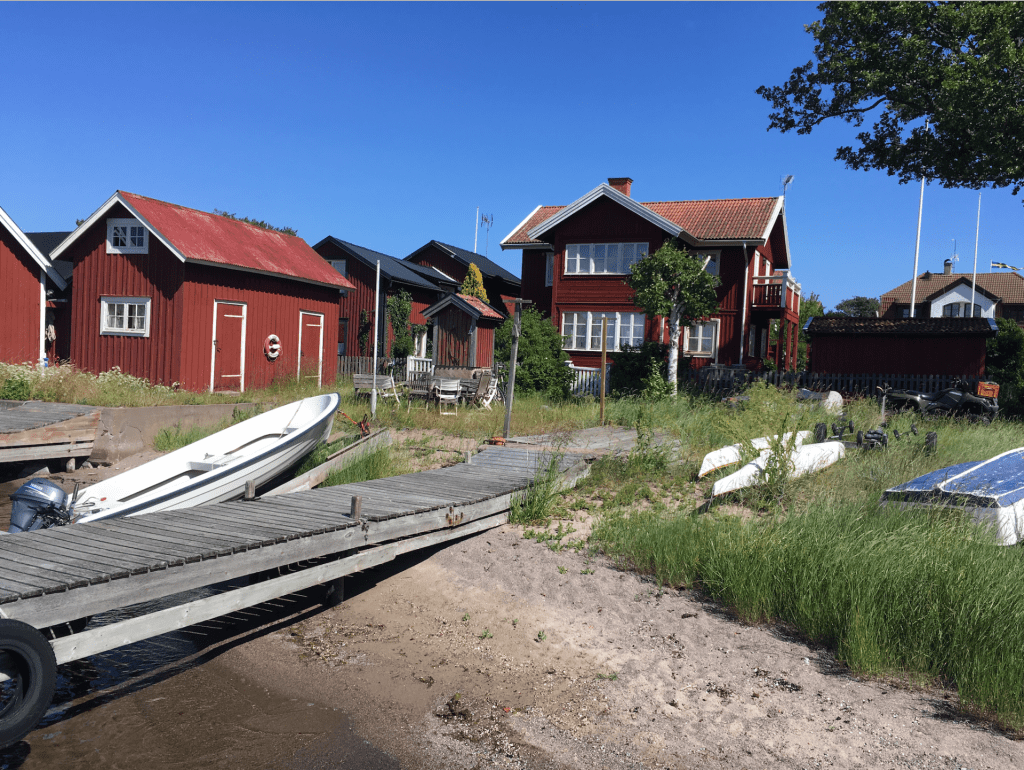
G&EE: Reflecting your overall experience on the mobility programs, what are some key observations, takeaways, and pieces of advice you would give to prospective/current GWSB students?
Antonia: Participating in the G&EE programs offered you international business experience and educational exposure in a very convenient format. The courses are intensive since we have to accommodate client meetings in different time zones, conduct extensive research on behalf of the client, and complete your deliverables. As program participants, students learn by doing, a skill that prospective employers find valuable. In addition, working with your team and classmates abroad full-time creates a unique fellowship that prevails long after the course is completed. To increase your chances for admission, be on the lookout for the G&EE programs as soon as the semester starts to prepare your application because the selection is competitive.
--

